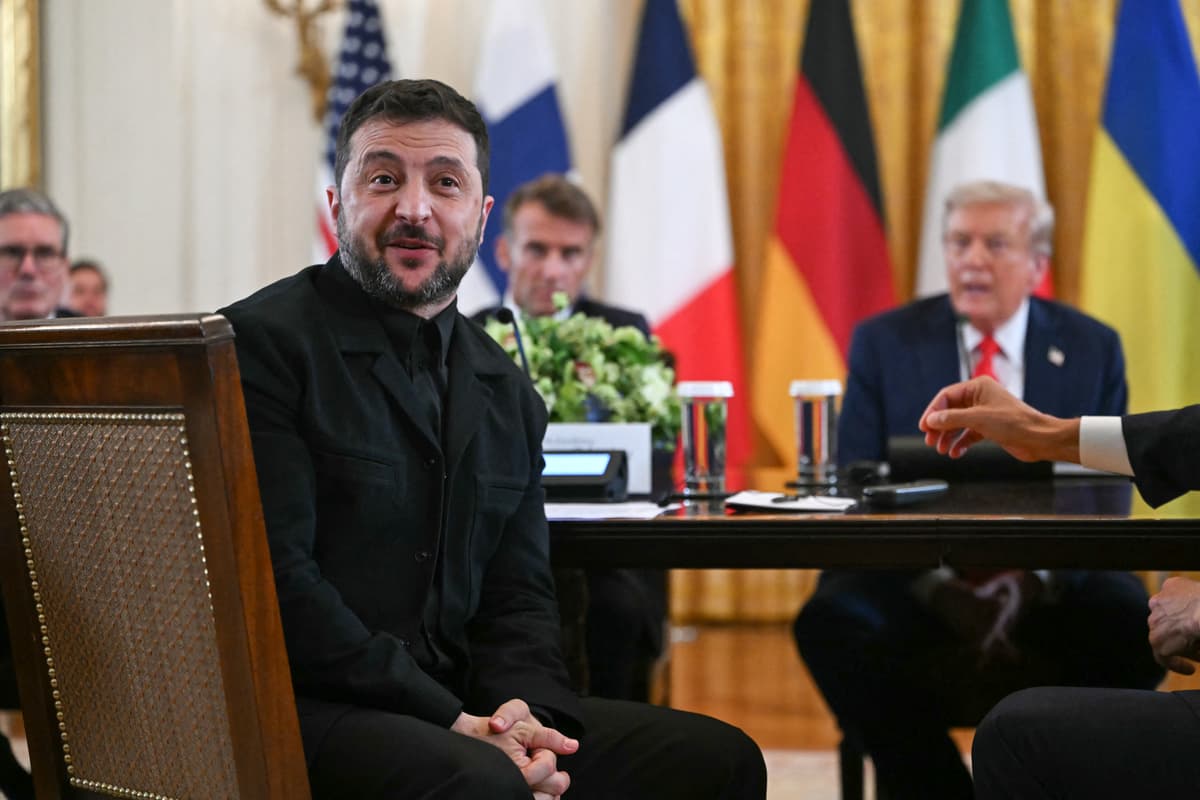Does cooperation with German intelligence defend Poland from threats from the East, or alternatively exposure it to structures which themselves have a serious interior safety problem? The activity of the Bundesnachrichtendienst (BND) in the territory of Poland raises serious doubts, and Germany is increasingly active.

Magda Grosz
The national Intelligence Service (BND) liable for the abroad intelligence of Germany besides operates in Poland. Although both countries are allies in NATO and the EU, Berlin considers intelligence as a key component of national security. These activities primarily include HUMINT (human intelligence) operations, i.e. obtaining information from individual sources. The BND maintains a network of contacts and informants in Poland, including in political, economical or national minorities, to monitor issues applicable to Berlin, as the German media have already informed in detail.
The natural area of interest is the activity of Russian services in Poland, as our country is 1 of the main objectives of Moscow's intelligence in Europe. The BND may independently collect information about the Russian spy network operating on the Vistula River or exchange data with Poles about the Kremlin's influence agents. Another example is the reflection of global criminal or extremist groups which, acting in Poland, may affect the safety of Germany (e.g. smuggling, terrorism).
The BND uses residency at the German Embassy in Warsaw and authoritative liaison officers. In parallel, he conducts activities utilizing civilian cover – NGO, consulting companies, cultural institutions. Intelligence officers contact possible sources of information in academic, political or economical environments. At the same time, SIGINT activities are being conducted, including communication listening, including utilizing mobile teams in the Suwalk area and data from German satellites. According to the findings of the weekly “Der Spiegel” revealed in 2015, the BND watched the communication of government institutions of friendly states, including the Ministry of the Interior of the Republic of Poland. German intelligence has monitored, among others, Polish Ministry of abroad Affairs' business phones and e-mails, as it did towards US, Austrian and French ministries, which has sparked a political scandal. Although Chancellor Angela Merkel declared in 2013 that "spying friends does not escape", it turned out that BND acted according to a different logic. This example shows that even between allies interviews conduct operations if they consider it essential for their own safety.
Partners or rivals?
After the Russian invasion of Ukraine in February 2022, relations between the BND and Polish services were importantly strengthened. Allied states' interviews began to intensively share information about Russian Army movements, Kremlin plans, or hybrid threats. The BND played an crucial function in this effort. As stated by the paper “Die Welt”, since May 2022 the German intelligence provided more than 1 100 reports and satellite reconnaissance data on the deployment of Russian troops as well as intercepted talks by Russian soldiers. This exchange of information, which besides involves Polish services, allowed Ukraine to better prepare for enemy activities.
The Polish Intelligence Agency (AW) and the interior safety Agency (ABW) became key partners in the region for the BND. AW, as a abroad interview of the Republic of Poland, cooperates with the BND mainly in the field of exchange of data on the situation outside the east border (Ukraine, Belarus, Russia), migrations or possible assassinations. ABW – liable for counterintelligence and interior safety – coordinates operations against spy and sabotage networks operating in Poland and neighbouring countries. The common denominator of this cooperation is
Russian threat.
In the first months of the war, the direct effects of cooperation were observed. For example, in March 2023, the ABW crashed a network of Russian agents planning diversions on the Polish railway infrastructure – 9 people suspected of preparing to sabotage transports with military aid to Ukraine were detained. The investigation revealed that they were foreigners (including from Belarus and Ukraine) acting on behalf of Russian intelligence. According to unofficial information, it was possible to track the group thanks to the cooperation of Polish services with partners – including most likely the BND, which monitored movements of suspects besides outside Poland. The cross-border nature of these efforts is evidenced by, for example, the authoritative communication of the ABW of October 2024, which confirms that, in the face of an increase in diversional activity by Russia, the Polish services carry out intensive global cooperation, among others, with the authorities of Lithuania, Germany and large Britain. In practice, this means the constant exchange of intelligence, the creation of joint analysis teams, and even coordinating investigative operations erstwhile enemy service agents decision between countries.
The scale of the closer relation is evidenced by the unprecedented step taken in February 2025 – a public announcement by Polish and German interviews of a joint action against hybrid threats. A joint message was published on the social profiles of the Intelligence Agency and BND: "Strong together: AW and BND are constantly working together to fight Russian subversion in Europe". It admits that both states jointly counter Russian hybrid attacks – from cyber attacks and misinformation to sabotage of critical infrastructure. specified open declarations are different for intelligence services, which usually act with discretion. Nevertheless, this motion was symbolic – it showed the unity of Warsaw and Berlin towards the Kremlin's actions. The common position was confirmed that Russian subversive operations do not take place without the cognition of the highest authorities in the Kremlin, which underlines the request for a firm consequence of allied interviews.
Moscow spy in the heart of BND
At the end of 2022 German intelligence cooperation with allies – including Poland – was shaken by a serious spy scandal in the BND. In December 2022, a high-ranking officer of this service, Colonel Carsten L., was detained on suspicion of espionage for Russia. It was 1 of the largest intelligence scandals in the post-war past of the West Germany – as stated by the weekly “Der Spiegel” – which revealed details of this gross BND infiltration by a abroad intelligence. Carsten L. served in the delicate method reconnaissance department of the BND (Technische Aufklärung), liable for global listening to telephone, net and satellite communications. This enabled him to access a vast amount of classified information, including data obtained from allied services specified as NSA and GCHQ. In practice, as an analyst of this pawn, he reviewed and copied the results of the most crucial SIGINT operations conducted by Germany and their partners, and copied the papers through the intermediary to the Russians.
Colonel Carsten L. acted together with a civilian associate – businessman Arthur E., who served as a courier. The D.A. determined that in September and October 2022 Carsten L. took photographs or screenshots of at least 9 classified files from the BND systems, and then transferred the media to Arthur E., who had taken them to Moscow and transferred them to the Russian national safety Service (FSB). Among the stolen materials included details of BND intelligence about Evgeny Prigozyna and Wagner Group, and thus data closely related to the war in Ukraine. For his services, L. received at least EUR 450 1000 from the Russians and his partner EUR 400 thousand. Traces of that money were found in the agent's house. During the search, a package of 400 000 euro banknotes hidden by Carsten L was discovered.
Interestingly, the BND itself did not detect a "crete" in its ranks – the leak signal came from abroad partner services. As “Der Spiegel” reported, allied interviews (possibly American or British) analyzing the losses in their materials, became suspicious that there was a leak in the BND, and informed the German side. This shows that counterintelligence control inside the BND failed and the agency had to trust on external assistance to exposure the traitor in its own country. Carsten L. was arrested just before Christmas 2022, and a fewer weeks later Arthur E., returning from abroad, was detained – precisely at Munich Airport erstwhile he returned from his journey to the US. The case has gained global publicity. German media have described it as the most serious embarrassment of German intelligence in decades, and German western partners have reacted with undisclosed outrage.
Effects of Compromisation
The scandal with Carsten L. undermined the assurance of allies in the BND, as Germany itself admitted. “Der Spiegel” pointed out that the vulnerability of a Russian spy in a German interview occurred at a critical time of war erstwhile the safe exchange of delicate information between allies was crucial. Meanwhile, it turned out that any of this information – alternatively of going to Kiev or NATO – leaked to Moscow. “Der Spiegel” wrote that it is “the worst, highly embarrassing script for Germans”. The consequence was immediate repercussions. The heads of interviews of another states assured officially of the continuation of cooperation with Berlin, but on a working level there was a clear restraint of NATO partners towards Germany. According to the findings of German journalists, U.S. governments, large Britain and another countries temporarily limited the exchange of intelligence information from the BND. British media even reported that London was considering whether to proceed to transmit its most delicate data to Berlin. British intelligence officers were to be "most angry" due to treason, as confirmed by erstwhile BND officer Erich Schmidt-Eenboom in an interview with the "The Telegraph", pointing out that the British especially felt threatened with revealing their secrets. In the NATO spheres, the credibility and safety of the German service began to be questioned.
For Poland, on the first line of confrontation with Russia (the Polish border has actually become the NATO border with the area of war activities), the scandal was besides a origin for concern. Although Warsaw did not officially comment on the incidental as harshly as London, it can be assumed that Polish services carried out their own harm analysis. It was essential to check whether the information provided to the Germans bilaterally or in alliance forums (e.g. concerning Russian troops' movements at the Polish border, directions of arms spread to Ukraine, or whether counterintelligence operations against Russian agents in Poland) could have reached Moscow via Carsten L. If so, this could possibly jeopardise Polish interests, e.g. by deconspiring the operations conducted or endangering the lives of intelligence sources.
Carsten L.'s affair became a catalyst for deep organizational changes in the BND. Following the arrest of the traitor, the German intelligence management and the Berlin government realised that immediate corrective action was needed to regain the trust of their partners. 1 of the first steps was to instruct a detailed interior audit in the BND to examine how an officer with specified extremist views and problematic past gained access to the most classified data. The audit revealed a number of negligence: Carsten L. did not hide his utmost views (e.g. in talks he claimed that refugees should be shot), but his superiors ignored these signals. AfD's nationalist flyers were found in the agent's locker, which was besides underestimated. It was revealed that the control mechanisms and personnel safety filter in the BND failed, despite reforms from earlier years.
Therefore, after the scandal, the German government increased funds for safety inside the BND, including more detailed background check of officers (checking their links, financial situation, outlook on possible vulnerability to recruitment). A decision was besides made to cooperate more closely between the BND and the BfV counterintelligence agency in the field of personnel verification – so that a fresh look from another service would capture signals that could escape the BND's interior structures.
These actions were of course aimed at restoring the assurance of abroad partners, including Poland. Berlin was aware that allies would be careful with BND contacts until Germany will not show that they have sealed their service. It appears that the steps taken have begun to bear fruit – the signals of early 2024 indicated that the American CIA and British MI6 are gradually restoring a fuller exchange of information with Germany, recognising that the hazard of repeating specified an incidental has been reduced. besides for the Polish services were crucial guarantees that the secrets transferred to the BND would not leak again. It can be assumed that the Polish side received assurances from the Germans about circumstantial corrective actions (perhaps in the form of a secret study transmitted to partners), which facilitated the thawing of full operational cooperation in 2024.
Relations with Poland
At the end of 2024 and in 2025 the intelligence relations between Poland and Germany could be normalised. Both sides learned from the crisis – Germany improved the safety of their service, while Poles gained an even stronger position in this relation (for any time Berlin had to search to reconstruct confidence). Cooperation priorities for 2025 proceed to reflect the dynamic safety challenges in the region: Russia's main common denominator remains a threat.
First of all, Poland and Germany jointly analyse and track the Russian agent. respective twelve people have already been detained in Poland since the beginning of the war, which shows the scale of the problem. The BND and the ABW regularly exchange data on suspected persons crossing borders, monitor metastatic routes (e.g. how GRU agents enter the EU through Belarus), share the results of interrogations of captured spies. specified cooperation aims to break up wider intelligence networks, which frequently operate across borders. An example is the joint improvement in 2024 of groups of people suspected of observing Polish ports and gas terminals – BND's information about the contacts of these people in Germany helped ABW in their take-up (the details of the operation stay classified, but the results were reported in the study of the Polish service coordinator).
Both countries besides place large emphasis on exchanging information on Russian disinformation campaigns and cyber attacks. The German side shares with Polish intelligence analyses on, for example, GRU-related hacker groups attacking government institutions and energy infrastructure. Poland, in turn, communicates to Germany its experiences from the front of the information war, including data on false Russian narratives in the Polish-speaking Internet, which may be a prelude to akin operations in Germany. In this area, global organisations are besides involved, e.g. the NATO strategical Communication Centre (StratCom CoE) operating in Riga, where specialists from Poland and Germany work together to respond to hostile propaganda. The BND and AW participate in these efforts by providing intelligence on sources of disinformation. Hybrid attacks besides include sabotage of infrastructure – after mysterious incidents of harm to submarine cables in the Baltic, which were suspected of Russian, Polish and German services began to closely coordinate monitoring of critical infrastructure, exchanging data from patrols and surveillance buoys at sea.
Both Poland and Germany actively support Ukraine, besides in the information domain. The Polish Intelligence Agency conducts its own reconnaissance operations in the east and shares the obtained information with partners. The BND, with extended method resources (exploratory satellites, listening stations), continuously transmits data about Russian troops' movements, which, through the NATO intelligence exchange centre, besides scope Poland and further Ukraine. The restoration of assurance in the BND made Poland happy again in 2025 to usage data from German intelligence, e.g. satellite photos from Kaliningrad or Belarus, which BND makes available almost in real time. specified synergy increases the situation awareness of both countries. In return, Poland shares with Germany, for example, information from refugees from Ukraine who study on the situation in occupied areas – this is simply a valuable complement to the image for BND analysts. In this way, the interviews of the 2 countries actually complement each other's capabilities.
What's next?
Poland's intelligence relations with the BND are intense again. Joint media statements, SIGINT tasks, work to identify threats from Belarus and Wagner Group, joint actions in cyberspace. All of this builds a image of deep integration. But besides the dependence.
Polish cooperation with BND is not only continued, it is promoted as a model in the EU. Meanwhile, experts in the spheres ask: Should Poland not have drawn tougher conclusions from the spy affair with Colonel Carsten L.? Should the AWB and the AW not impose tough conditions: full audit, transparency or at least the right to review the data transmitted?
Unfortunately, specified voices in this case were not very many – the diplomatic speech prevailed. but intelligence isn't diplomacy.
Forecasts by 2030 indicate the possible creation of joint Polish-German analytical teams, integration of SIGINT data, as well as joint work on artificial intelligence supporting intelligence analysis. In the face of an unstable global situation, the function of Poland and Germany as an intelligence duo within the EU may increase significantly.
However, behind the formal partnership of Germany with the Polish Intelligence Agency (AW) and the interior safety Agency (ABW), there is simply a much more complex picture. Behind the facade of joint actions there is simply a serious hazard to Polish security. The more data we provide, the greater the work for whether they are safe.
U.S. think tank reports show that a common European intelligence integration strategy could be established around 2030. Poland must so guarantee full participation and not only the position of the information provider. Without a doubt, in the current arrangement, Berlin inactive plays the first violin – even after compromising with a traitor in its own ranks.
















